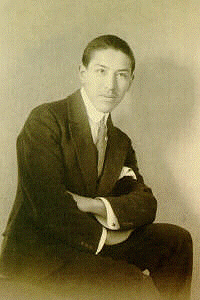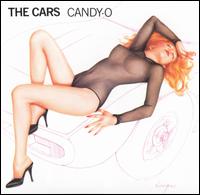Alberto Vargas: Difference between revisions
m (Text replacement - "{{header}}" to "{{headred}}") |
m (Text replacement - "{{headred}}" to "{{header}}") |
||
| Line 1: | Line 1: | ||
{{ | {{header}}{{DEFAULTSORT:Vargas, Alberto}} | ||
'''Alberto Vargas''' (1896 {{dag}}1982) was a noted painter of [[pin-up]] girls and [[erotica]]. Born in Arequipa, Peru, '''Joaquin Alberto Vargas y Chavez''' came to the United States in 1916 after studying art in Europe prior to World War I. His early career included work as an artist for the Ziegfeld Follies and for many Hollywood studios. He became famous in the 1940s as the creator of iconic World War II era pin-ups for [[Esquire (magazine)|Esquire]] magazine known as "Varga Girls." The nose art of many World War II aircraft was adapted from these Esquire pin-ups. | '''Alberto Vargas''' (1896 {{dag}}1982) was a noted painter of [[pin-up]] girls and [[erotica]]. Born in Arequipa, Peru, '''Joaquin Alberto Vargas y Chavez''' came to the United States in 1916 after studying art in Europe prior to World War I. His early career included work as an artist for the Ziegfeld Follies and for many Hollywood studios. He became famous in the 1940s as the creator of iconic World War II era pin-ups for [[Esquire (magazine)|Esquire]] magazine known as "Varga Girls." The nose art of many World War II aircraft was adapted from these Esquire pin-ups. | ||
Revision as of 16:58, 5 July 2021
Alberto Vargas (1896 †1982) was a noted painter of pin-up girls and erotica. Born in Arequipa, Peru, Joaquin Alberto Vargas y Chavez came to the United States in 1916 after studying art in Europe prior to World War I. His early career included work as an artist for the Ziegfeld Follies and for many Hollywood studios. He became famous in the 1940s as the creator of iconic World War II era pin-ups for Esquire magazine known as "Varga Girls." The nose art of many World War II aircraft was adapted from these Esquire pin-ups.
A legal dispute with Esquire magazine over the use of the name "Varga" resulted in a judgment against Vargas and he struggled financially until the 1960's when Playboy magazine began to use his work as "Vargas Girls." His career flourished and he had major exhibitions of his work all over the world. The death of his wife Anna Mae in 1974 left him devastated and he stopped painting. The publication of his autobiography in 1978 renewed interest in his work and brought him partially out of his self-imposed retirement to do a few works such as album covers for Bernadette Peters and the Cars. He died of a stroke on Dec. 30, 1982, at the age of 86.
Many of Vargas' works from his period with Esquire are now held by the Spencer Museum of Art at the University of Kansas, which was given those works in 1980 along with a large body of other art from Esquire Magazine.[1]
His work was typically a combination of watercolor and airbrush. His mastery of the airbrush is acknowledged by the fact that the highest achievement in the community of airbrush artistry is the Vargas Award, awarded annually by Airbrush Action magazine. His images would often portray elegantly dressed, semi-nude to nude women of idealized proportions. Vargas's artistic trait would be slender fingers and toes, the nails of which were often painted red.
Vargas is widely regarded as the one of the finest artists in his genre. In addition to his work as an artist, he also served as a judge for the Miss Universe beauty contest in 1956-58. [2]
See also
References
- Alberto Vargas: Works from the Max Vargas Collection, by Reid Stewart Austin, Hugh Hefner. 144pp (2006) (ISBN 978-0821257920).
- Vargas, by Reid Austin and Alberto Vargas. 127 pp. (1978) < ISBN:0517530473 Buy it from Amazon.com > (autobiography).
- Varga. The Esquire Years. A catalogue Raisonne. 176 pp (1987) < ISBN:0912383488 Buy it from Amazon.com >
- The Great American Pin-Up, by Charles G. Martignette and Louis K. Meisel, BuyBook|3822817015}}
- Vargas, by Benedikt Taschen, text by Astrid Conte. 79 pp. (1990) < ISBN:3894500638 Buy it from Amazon.com >
External links
- Alberto Vargas Pin-Ups calendars
- Vargas on "The Pin-Up Files"
- Alberto Vargas Biography
- Further gallery of his work
- Gallery of early and lost works
Chat rooms • What links here • Copyright info • Contact information • Category:Root

